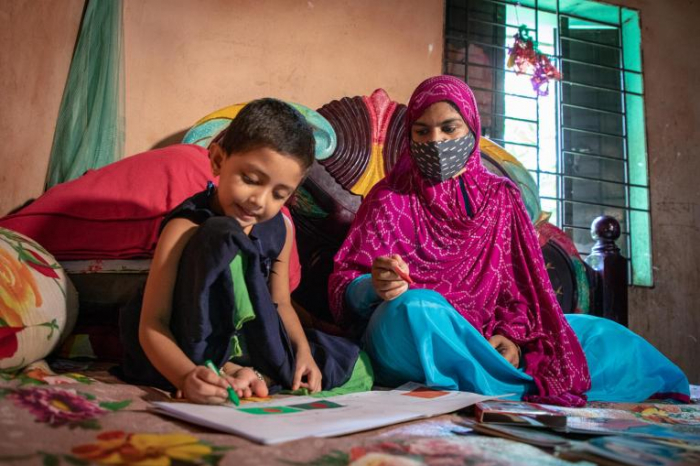Among that group of students, 102 million live in 14 countries that have kept their schools fully or partially closed for at least half of the COVID-19 pandemic, locking many schoolchildren out of any kind of education.
The report measures countries' readiness to deliver remote learning in response to disruptions of in-person education, covering almost 90 percent of students in low- and lower-middle-income countries. The analysis focuses on three domains: the availability of home-based assets and parents' education levels; deployment of policies and training for teachers; and the education sector's preparedness for emergencies.
Benin, Burundi, Cote d'Ivoire, Ethiopia, Madagascar, Malawi, Niger and Togo are among the countries with the most significant need for improvement within the education sector. During the COVID-19 pandemic, the impact of lack of remote learning readiness was especially felt by students living in countries where schools were fully or partially closed for at least half of the past 19 months, such as Madagascar, shows the report.
The report outlines the limitations of remote learning and inequalities of access, warning that the situation is likely far worse than the available data shows. Beyond the countries assessed, anecdotal and qualitative data reveals that learners have faced challenges with remote learning globally, including in higher-middle and high-income countries.
"Even in the midst of an ongoing emergency, we know there will be another one. But we aren't making enough progress to ensure the next time students are forced out of the classroom, they have better options," said UNICEF Executive Director Henrietta Fore.
There is no replacement for in-person learning, the report says. Yet, resilient schools with robust remote learning systems, especially digital learning, can provide a degree of education during school closures in times of emergencies. Moreover, once schools reopen, these systems can support students to catch up on their lost learning.
Through the Reimagine Education initiative, UNICEF is working with public and private partners to give children and young people equal access to quality digital learning, with the goal of reaching some 3.5 billion with world-class digital learning solutions by 2030.















































